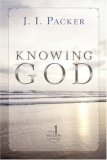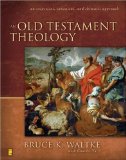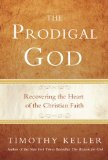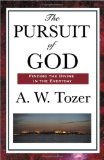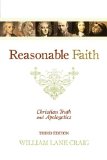Solomon is one of the more intriguing characters of the Bible. He was amazingly gifted and blessed by God, yet singlehandedly helped destroy the very nation he was appointed to rule (even if it didn’t fall apart until after his death). After a rise to the thrown that Michael Corleone would be proud of (if I didn’t know any better, I’d say Mario Puzo wrote the ending to The Godfather after doing his daily devotions in 1 Kings 1-2), he asks for and is granted wisdom by God Himself, along with the promise of wealth, honor and a long life (1 Kings 3:13-14).
Because of God’s promise to Solomon, many of us might read through the accounts of his accumulation of wealth in 1 Kings 9-10 and assume this is simply a fulfillment of what God had promised him. We might be forgiven in assuming that Solomon’s problems didn’t really start until chapter 11, with his marriage to multiple foreign women and subsequent worship of their gods. This is, of course, one possible way to read these chapters. But if we were more familiar with the Lord’s commands to the king back in Deuteronomy, we might not speak so highly of Solomon’s splendor.
In Deuteronomy 17:14-20, God details some of what Israel’s kings are supposed to do. This passage ends with a command for the king to copy the law down by hand and “read it all the days of his life so that he may learn to revere the LORD his God.” So, Solomon should have been well aware of the commands that precede this one.
One obvious command, previously mentioned, that Solomon broke is this one: “He must not take many wives, or his heart will be led astray.” 1 Kings 11 is pretty clear that Solomon was guilty of this one. But there are two other commands that Solomon did not follow:
- “The king, moreover, must not acquire great numbers of horses for himself or make the people return to Egypt to get more of them, for the LORD has told you, ‘You are not to go back that way again.'”
- “He must not accumulate large amounts of silver or gold.”
Did Solomon acquire a great number of horses? “He built up… all his store cities and the towns for his chariots and for his horses” (1 Kings 9:18-19). “Year after year, everyone who came brought a gift… horses and mules” (1 Kings 10:25). “Solomon’s horses were imported from Egypt and from Kue… They imported a chariot from Egypt for six hundred shekels of silver, and a horse for a hundred and fifty” (1 Kings 10:28-29). This last reference may also indicate that Solomon disobeyed God’s command about sending his servents to get horses from Egypt, though it doesn’t explicitly state his servants actually traveled there to import them (but I’d still think this is most likely).
Did he accumulate large amounts of silver or gold? It’d be too much to write out all the verses that indicate that he did in these chapters; it’s fair to say that Solomon managed to form quite a treasury in his time. Again, I realize that the Lord promised him a wealthy kingdom, but given God’s commands to the king in Deuteronomy 17 and the eventual fall of Solomon, I think it’s hard not see where Solomon had crossed the line into sinful desire for wealth.
Was Solomon “all bad?” (Are there gradations of evil?) Of course not. In many ways, he was a wise king. He built the Temple, gave Israel peace, wrote thousands of proverbs and songs and dove into the exciting world of botany and zoology. And yes, the prosperity of the kingdom was a gift from God. But is it possible that he took a gift from God, and exploited it to his own advantage? It seems to me that reading 1 Kings 9-11 through the lens of Deuteronomy 17:14-20 would indicate that this is the case. In the end, he proved not to be wise in the most important matters. The Lord warned him in 1 Kings 9:3-9 that the kingdom could be taken away and the Temple destroyed. It was Solomon who made the destructive choices which helped lead to the downfall of all he saw built in his lifetime. Thus, when all is said and done, Solomon is not as wise as we might think.


